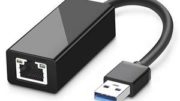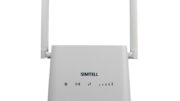I’m willing to bet that you or someone close to you did some traveling this past month. December is the busiest month for travel. Of course in 2020 we don’t leave our lives behind when we go to the airport. I’m not saying that waiting at the airport is fun, but it’s not as profoundly isolating as it was in the 20th century. Today we have our phones and our laptops, and a stint at the gate isn’t the gateway to schizophrenia it once was.
When you have a choice to make…
A lot of airports have free Wi-Fi. I travel a lot for Solid Signal and it’s rare I find an airport that isn’t full of free wireless networking. It’s a cheap way to keep travelers happy. But all too often that Wi-Fi is an open network. I notice that it’s very easy to see my fellow travelers’ computers even without trying. I don’t snoop, but I have a feeling I could. And if I can see them, they can most definitely see me. Not exactly the warm fuzzy feeling I want when I’m using a laptop full of corporate secrets.
The other option would be to tether to my cell phone. This isn’t a problem either, and sometimes the speeds are actually better. But everyone knows cell data is notoriously insecure. You should think twice about buying anything online from your phone, especially if you are manually typing your credit card number in.
So what’s the best option?
Get a VPN if you really care about privacy.
You’ve heard of VPNs. Virtual Private Networks are used by companies to help protect their data, and by enterprising young people to watch shows that aren’t available in the US. I’m not here to judge. The technology is not bad by itself, although it’s obviously easy to use for bad aims.
If you’re worried about your data when you’re connected to someone else’s network, get a VPN. This is true whether you’re connecting over cellular or open Wi-Fi. Both options are inherently insecure and no place for business travelers. A VPN will shield your data from all those prying eyes.
A VPN works by creating a secure tunnel between the device and the router which connects it to the internet. The traffic bypasses local routers which could potentially be compromised. The result is a data stream that is extremely difficult to crack into. It’s not impossible, because no act of hacking is impossible. But it’s hard enough that you can feel secure that none of the slack-jawed travelers sitting near you are going to be a problem.
Which VPN service is best?
Solid Signal doesn’t sell VPN service so I won’t recommend one. But when you do go shopping for a VPN, make sure it’s from a reputable company. Don’t choose a free VPN service. A lot of them aren’t any better than no VPN at all. You get what you pay for. Choose a VPN that promises good tech support and is associated with companies you know. It’s worth it. After all, it would be a shame if the VPN you chose ended up stealing your personal information. It’s been known to happen.





